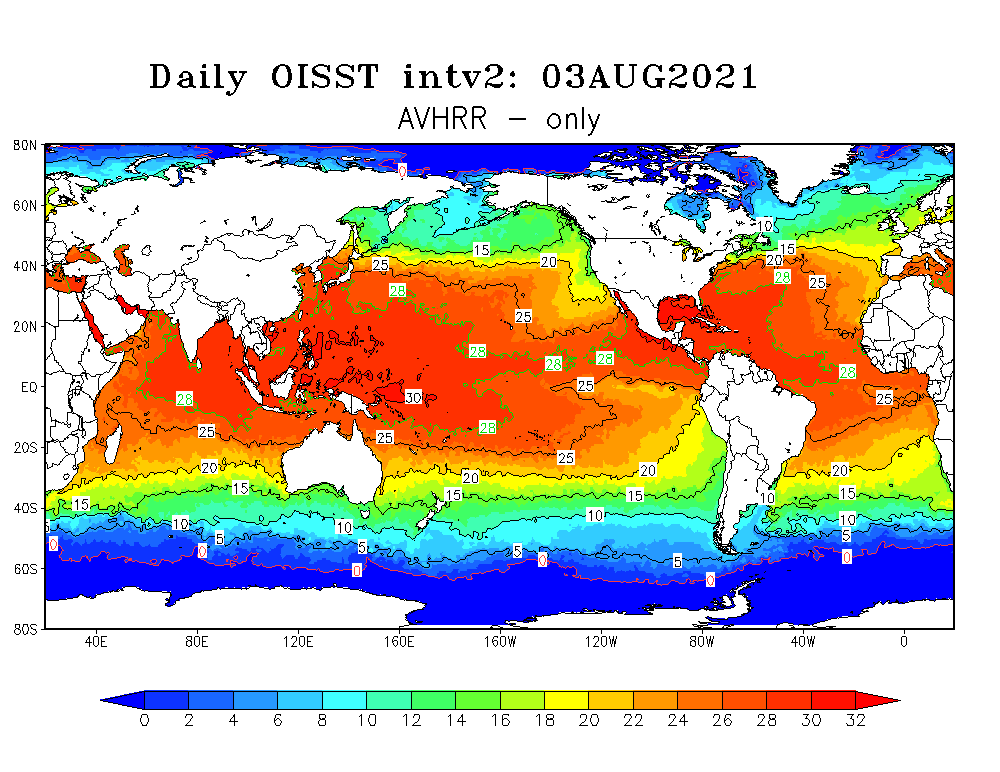
For several weeks, sea surface temperatures in the western North Atlantic Ocean have been running significantly above normal. This visualization uses data from NOAA's polar-orbiting satellites to map areas where August 2018 sea surface temperatures have been warmer or colder than average. Noticeable are the deep red shades off the coast of New England and eastern Canada, where the normally chilly waters have been running as much as 9 degrees Fahrenheit (5°C) warmer than average.
In the Gulf of Maine, which stretches from Cape Cod to southern Nova Scotia, a "marine heatwave" sent temperatures toward record-highs last month. On August 8, NOAA satellites measured an average sea surface temperature of 68.93°F (20.52°C), which fell just shy of a record set in 2012.
The Gulf of Maine is one of the fastest-warming bodies of water in the world. Using satellite data, scientists at the Gulf of Maine Research Institute have found that over the past 30 years, the Gulf has warmed more than three times faster than the global average, while in the past 15 years, the region has warmed seven times faster than the global average rate.
Scientists believe that climate change may be responsible for the warming waters. As melting glaciers in Greenland dump more freshwater into the North Atlantic, the ocean circulation that keeps waters along the coast of eastern North America cold may be starting to weaken – allowing more warm water to pool into the Gulf of Maine.
Warm sea surface temperatures help transport more heat energy and moisture into the atmosphere. The persistent warm waters off the coast of the northeastern U.S. and Canada this summer have contributed to record-warm overnight temperatures and high humidity levels. NOAA's recently released monthly climate report shows that much of the Northeast experienced record-warm overnight low temperatures in August 2018.
